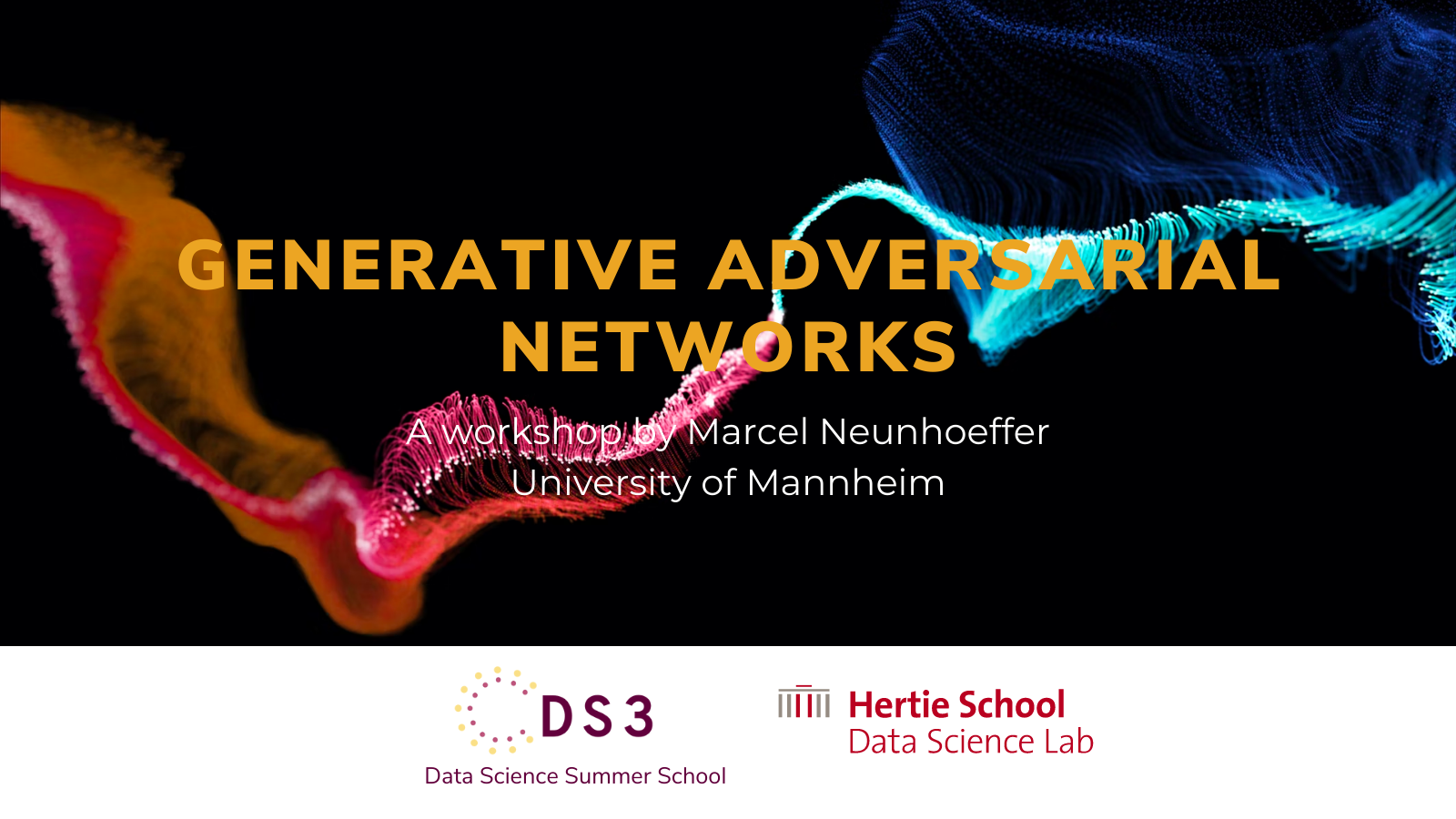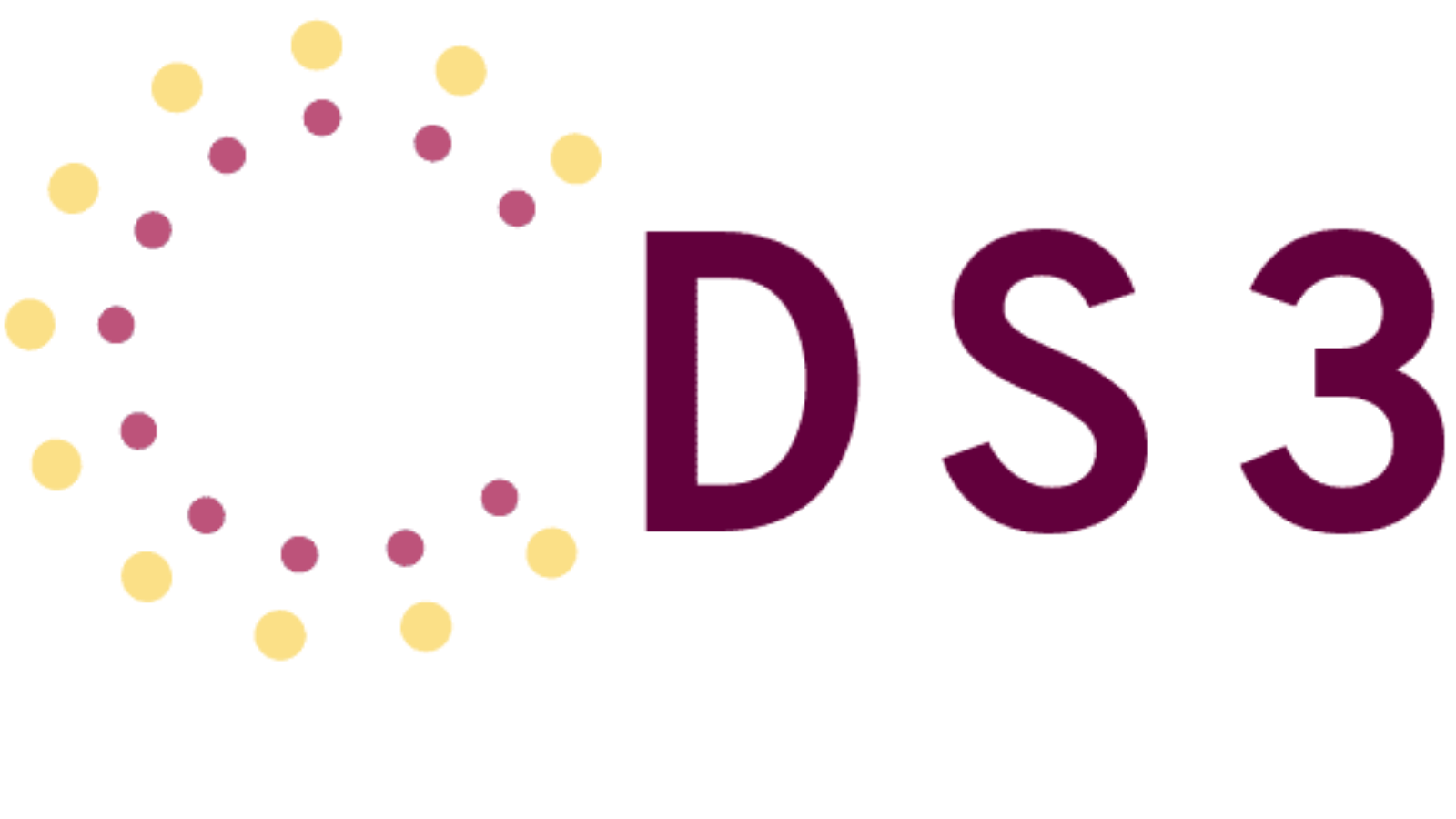The workshop will take place tentatively on August 03, 2022, on Zoom and Youtube Livestreaming
About The Data Science Summer School
The Data Science Summer School is a series of theoretical and practical workshops on the exciting methods and technologies currently employed by industry, government, and civil society to address the world's most complex problems today. It is organized by the Hertie School Data Science Lab with funding and support from the Hertie School.
Workshop Details

Yann LeCun described Generative Adversarial Nets (GAN) as one of the most important breakthroughs in deep learning. GANs are a system of multiple neural networks (for example a generative model and a discriminative model) that are trained in an adversarial manner to learn a generative distribution of the underlying data. GAN were first introduced by Goodfellow et al. in 2014, who illustrate the idea with the following example: "The generative model can be thought of as analogous to a team of counterfeiters, trying to produce fake currency and use it without detection, while the discriminative model is analogous to the police, trying to detect the counterfeit currency. Competition in this game drives both teams to improve their methods until the counterfeits are indistiguishable from the genuine articles".
In this course students will learn the basics of Generative Adversarial Nets and code a very simple GAN from scratch. We will then look at different applications of GANs for example to generate images or synthesize tabular data. We will learn how different applications lead to different design choices of GANs. We will also cover some advanced topics such as privacy preserving learning of GANs and how to improve the quality of generated examples (i.e. images or synthetic datasets) through post-processing of the generative model.
Workshop Topics
A basic understanding and prior coding experience of neural networks will be helpful to follow this course. The practical sessions of the course will be done in R and python.
Key sub-topics:
- Introduction to GANs
- Coding a simple GAN from scratch
- Applications of GANs for images and tabular data
- Advanced topics: privacy preserving synthetic data and quality improving post-processing of GANs
Literature
- Deep Learning, Author: Ian Goodfellow et al. 2016
- Generative Adversarial Nets, Ian Goodfellow et al. 2014
- Private Post-GAN Boosting, Marcel Neunhoeffer et al. 2021
Content Licensing
All workshop materials and recording are under Creative Commons Attribution-NonCommercial-ShareAlike 2.0 license. You are free to share — copy and redistribute the material in any medium or format, and adapt — remix, transform, and build upon the material. However, you must give appropriate credit, provide a link to the license, and indicate if changes were made. You may do so in any reasonable manner, but not in any way that suggests the licensor endorses you or your use. You may not use the material for commercial purposes. If you remix, transform, or build upon the material, you must distribute your contributions under the same license as the original.

Workshop Materials
Instructor

Marcel Neunhoeffer
Marcel Neunhoeffer is a Ph.D. Candidate and Research Associate at the chair of Political Science, Quantitative Methods in the Social Sciences at the University of Mannheim. His research focuses on quantitative methodology, where he is specifically interested in the application of deep learning algorithms to social science problems. He is also a co-founder, contributor and the visualizationist of zweitstimme.org – a website that communicates scientific forecast for German Federal elections.
Schedule (Central European Summer Time - CEST)
Session Starts
Generative Adversarial Networks (Part I)
Short Break
Session Continues
Generative Adversarial Networks (Part II)
